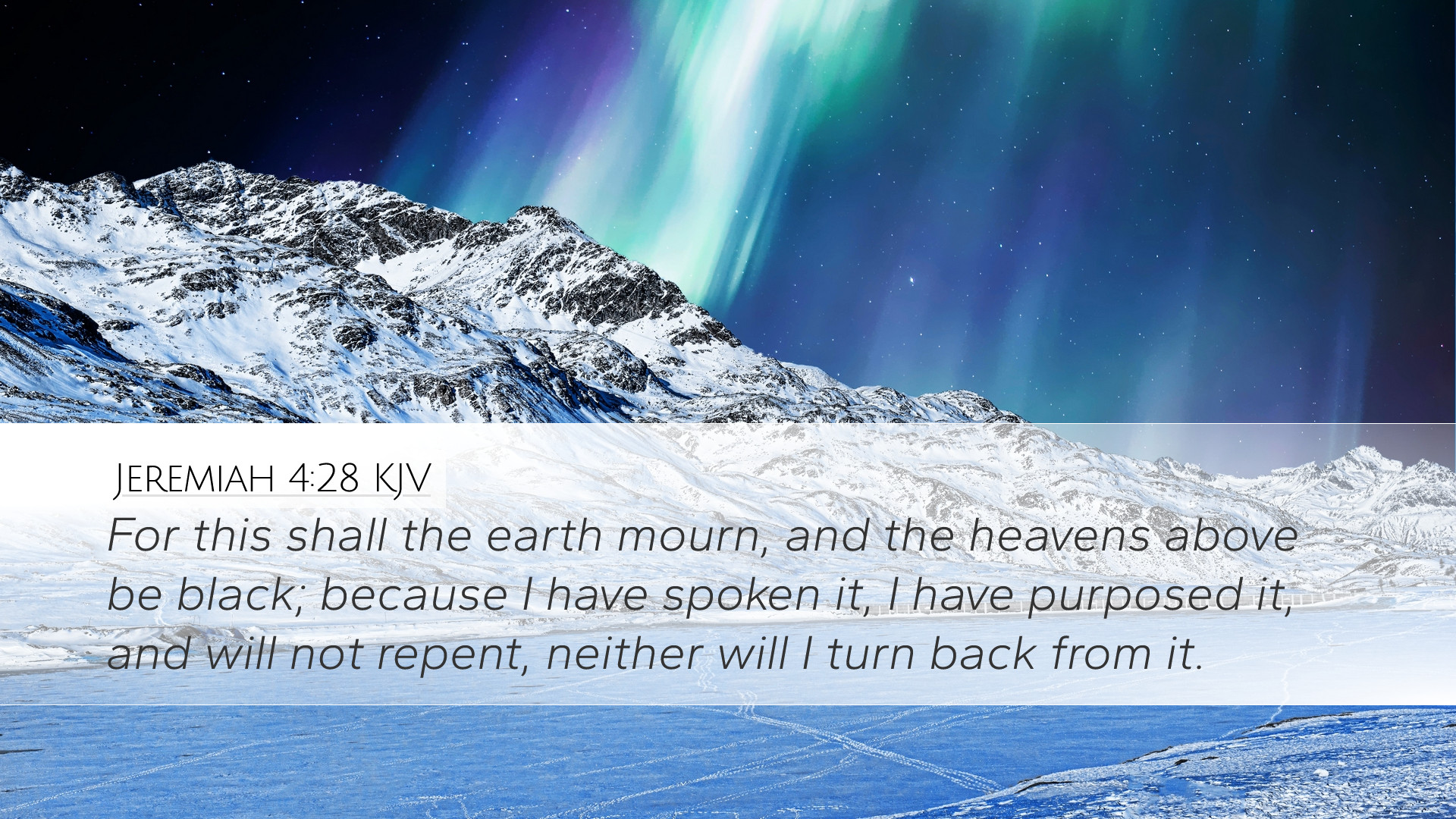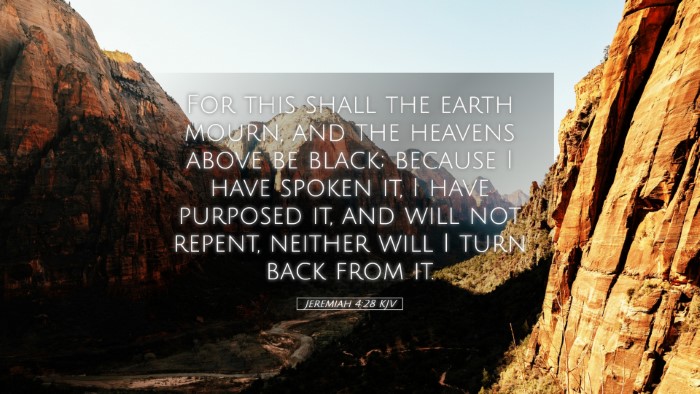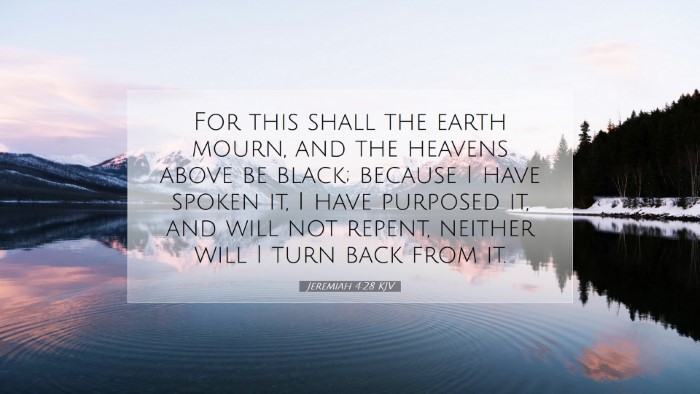Commentary on Jeremiah 4:28
Text of the Verse: "For this the earth shall mourn, and the heavens above be black: because I have spoken it, I have purposed it, and will not repent, neither will I turn back from it." - Jeremiah 4:28
Introduction
The verse of Jeremiah 4:28 presents a poignant reflection on the impending judgment of God upon Israel due to their unrepentance and idolatry. It encapsulates the profound themes of mourning, divine decree, and the irrevocable nature of God’s pronouncements. Various public domain commentaries offer significant insights concerning the weight of this message for both the original audience and contemporary readers.
The Context of Jeremiah
Understanding the context of the Book of Jeremiah is crucial. Jeremiah lived during a tumultuous period preceding the Babylonian exile. His prophetic mission was marked by an unwavering call to repentance, yet he faced constant resistance from his people. This verse is situated within a larger discourse on the consequences of Israel’s disobedience.
Insights from Matthew Henry
Matthew Henry emphasizes the solemnity of the earth mourning and the heavens appearing dark. He notes that this imagery symbolizes not only the physical devastation that will follow the divine judgment but also the spiritual desolation that has befallen the people.
- The Mourning of the Earth: Henry interprets the mourning of the earth as a response to human sin, wherein creation itself groans under the weight of human rebellion.
- The Blackening of the Heavens: He points out that the heavens blackening signifies God's displeasure and the withdrawal of His blessings, which are foundational to life and prosperity.
- Divine Certainty: Henry stresses that the phrase "I have spoken it, I have purposed it" underscores the certainty of God's plan; it reflects God's sovereignty in enacting judgment and His unwillingness to relent.
Insights from Albert Barnes
Albert Barnes offers a detailed commentary on the theological implications of this verse:
- The Nature of God's Judgment: Barnes explains that God's judgments are not arbitrary but are rooted in His righteousness. The mourning of the earth represents the consequences of sin that lead to divine wrath.
- Irrevocability of Divine Decree: He highlights the declaration that God will not repent or turn back from His purpose. This indicates not only the seriousness of God's intentions but also serves as a warning to the unrepentant.
Insights from Adam Clarke
Adam Clarke provides a rich contextual interpretation of this passage:
- Historical Context: Clarke places the verse in the historical context of Judah’s impending doom, providing a narrative of national devastation as a result of disobedience to God.
- Symbolic Imagery: He elucidates the profound symbolism of mourning and blackness in the heavens, suggesting that they mirror the internal state of the people who have turned their backs on God.
- Theological Reflections: Clarke concludes with a theological reflection on the nature of God’s judgment as being just and warranted, reinforcing the realities of divine justice.
Theological Themes
This verse encapsulates several key theological themes vital for pastoral and scholarly reflection:
- God's Sovereignty: It emphasizes God's ultimate authority over creation and the inevitable fulfillment of His word.
- The Seriousness of Sin: The imagery of mourning and darkness serves as sobering reminders of the consequences of sin and the urgent need for repentance.
- God’s Purpose and Plan: The unchanging nature of God's purposes invites believers to trust in the certainty of His promises, both for judgment and for eventual restoration.
Practical Applications
For pastors, students, and theologians, this passage provides critical insights for both personal and communal reflection:
- Encouragement for Repentance: It serves as a call to recognize the seriousness of sin and to engage earnestly in repentance.
- Hope in God's Justice: Understanding God’s unyielding nature can bring hope that justice will prevail, even amid chaos.
- Affirmation of God’s Sovereignty: Believers are encouraged to affirm God's sovereignty in their lives and communities and to find security in His unchanging nature.
Conclusion
Jeremiah 4:28 serves as a profound declaration of God's judgment, reflecting His displeasure towards sin while underscoring the depth of His sovereignty and purpose. Through the insights gathered from the public domain commentaries, one can appreciate the weight of this verse, not only as a historical warning but also as a timeless message relevant to contemporary faith. The implications of this passage shape our understanding of God's character, the reality of sin, and the hope we find in divine justice.


